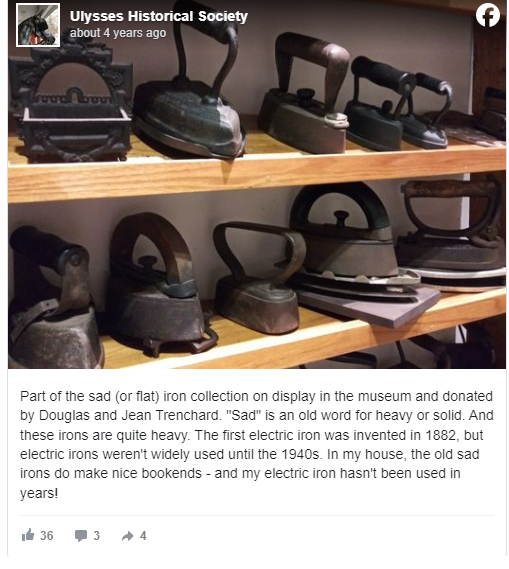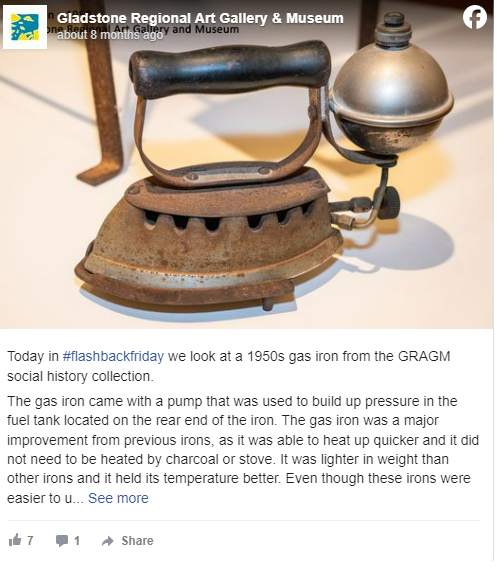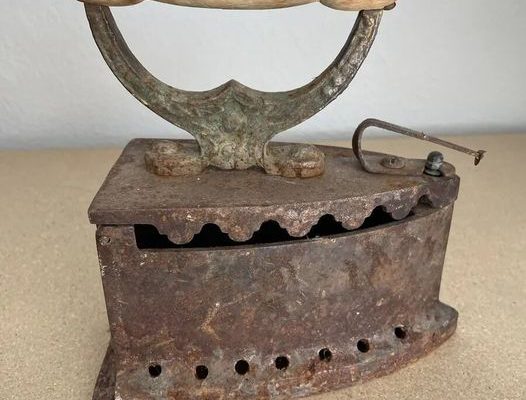When you first saw this handy household tool, you might have correctly guessed that it’s an iron.

This historical artifact provides a fascinating perspective on how daily tasks, like ironing, were accomplished in a time when alternative energy sources were prevalent.
Before the introduction of charcoal irons, individuals employed various methods, including using heavy objects heated over open flames, to press and flatten garments.

These cast irons were cleverly designed to incorporate a receptacle for burning charcoal, introducing a more consistent and effective heat source. This breakthrough not only improved the efficiency of the ironing process but also saved time and effort for individuals engaged in this household task.
Clever design
This remarkable advancement in ironing technology applied thermal energy generated from burning charcoal to provide a continuous and regulated warmth to the steel soleplate.

The hollow shape of the iron ingeniously housed the burning charcoal, ensuring a consistent source of heat for the ironing process.
To initiate the ironing session, users would open the chamber, insert hot charcoal into the designated area, and then press.
The wooden handle was crucial, ensuring that it remained cool enough for users to hold comfortably during the ironing process.
Simplifying domestic life
The transition to charcoal irons reflects a progression in technology aimed at enhancing the convenience and productivity of domestic chores. Let’s see how advancements in this tool played a crucial role in streamlining tasks and optimizing time management!

Improved efficiency: The adoption of charcoal irons significantly improved efficiency of ironing compared to earlier tools. This meant that individuals could complete their ironing tasks more quickly, freeing up valuable time for other essential activities within their daily routines.
Perfect pressing results: The regulated warmth released by the burning charcoal ensured the steel soleplate maintained an optimal temperature, allowing for smoother and more effective ironing. It also preserved the quality of clothing.
Global demand: The rapid popularity and widespread adoption of charcoal irons represented a pivotal moment in the evolution of ironing technology.
The global embrace of these irons underscored a universal demand for tools providing efficient and effective solutions to the common household task of ironing.
Reduced physical strain: Unlike previous methods that required frequent reheating, the simple mechanics of charcoal irons reduced physical exertion linked with ironing. The ergonomic design addressed a common challenge faced by individuals who struggled with the physical demands of keeping their clothes wrinkle-free.
Electric shift
The evolution of ironing technology continued with the introduction of electric irons in the early 20th-century, marking another significant leap forward. While charcoal irons were an improvement, they still required careful maintenance and operation. The transition to electric irons eliminated the need for charcoal, introducing a simpler, safer and more immediate heat source. Thank goodness!
A wrinkle in time
Charcoal irons transitioned from everyday household tools to unique relics that give us a connection to the past and show us how our ancestors would have gone about their daily lives – clearly they were incredibly adaptable!

The evolution of ironing technology only serves to demonstrate how far our technology has advanced, and how it’s made domestic chores more efficient, accessible, and less labor-intensive, allowing you more time to relax!
What do you think of this story? Have you ever used one of these coal-powered irons? Please let us know what you think and then share this story so we can hear from your friends!
